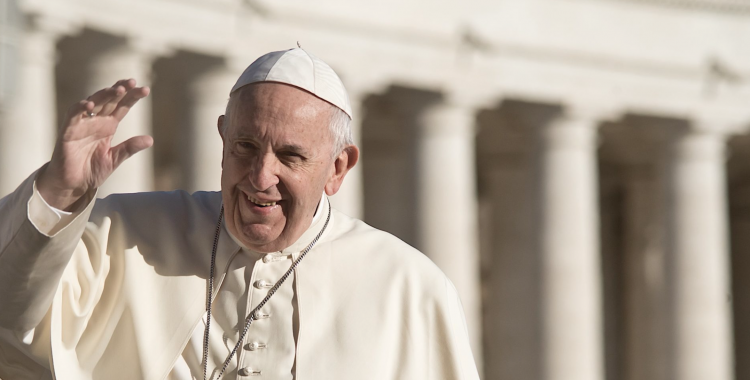This was the case of the Mozambican, Angolan and São Tomé and Príncipe Catholic bishops. If in Maputo the Episcopal Conference of Mozambique announced that it had decided "not to give blessings" to "irregular unions and same-sex unions", in Luanda the bishops of Angola and São Tomé even expressed "perplexity" with the blessings to "irregular couples" , determining that they should not be held in these countries because "it would create a huge scandal and confusion among the faithful".
In Cape Verde, while awaiting a joint note from the two dioceses of the archipelago, Bishop Ildo Fortes said that both follow Pope Francis' position, based on the principle of mercy. And he tried to explain, at the same time making it clear that this is not an approval: "Even to get out of the wrong path where they may be, even for those who are in sin, a blessing, a light is needed", he stated, asking a question: "If we bless the fields, the animals, why shouldn't we bless the people?"
The position taken by the pope on December 18th in "Fiducia Supplicans", the text published by the Congregation for the Doctrine of the Faith, which proposes the Church's blessing on couples considered "irregular", including same-sex couples, deserved from the bishops Africans a formal express distancing, authorized by Francis, in which they explained that the "Church's doctrine on Christian marriage and homosexuality" remains unchanged, and that they did not consider the blessing proposed by Rome "appropriate".
"Within the family of the Church of God in Africa, the declaration caused a wave of shock, sowed misunderstandings and unrest in the minds of many lay faithful, consecrated people and even pastors, and aroused strong reactions", said the Symposium of Episcopal Conferences African Nationals in January.
Such blessings - according to the same text, signed by the Congolese cardinal Fridolin Ambongo, archbishop of Kinshasa, on behalf of the symposium - cannot be carried out because "in the [African] context, this would cause confusion and would be in direct contradiction with the cultural 'ethos' of African communities".
According to Ambongo, the symposium's declaration constituted a "consolidated summary" of the positions adopted by each of the African episcopal conferences, and received the "agreement" of the pope, as well as the person responsible for the Vatican's doctrine office, Cardinal Victor Manuel Fernández.
In fact, two weeks after the symposium, Pope Francis recognized the exceptionality of Africa, claimed by his prelates, admitting in an interview with the Italian daily La Stampa that Africa is "special" with regard to the extra liturgical blessings proposed for couples of the same sex.
"Homosexuality is something 'ugly' from a cultural point of view" for Africans, said the supreme pontiff, who admitted a particular resistance in Africa to the blessing of same-sex couples, for cultural reasons, but said he was confident that, "little to little", everyone realizes the importance of inclusion and does not result in a schism.
The most vivid example of the ugliness referred to by Francis came from Burundi, whose President, Evariste Ndayishimiye, suggested the eradication of this "curse" by "stoning" its practitioners.
"If you want to bring a curse to the country, accept homosexuality," Ndayishimiye told journalists two weeks after the publication of "Fiducia Supplicans."
"I really think that these people, if we find them in Burundi, it is better to take them to a stadium and stone them. And that cannot be a sin," said Ndayishimiye, describing homosexuality as imported from the West.
This week, although without any geographic, cultural or personal reference, the pope insisted on the theme, after several attempts to distinguish sacramental blessings from extra-liturgical blessings.
"No one is scandalized if I give my blessing to a businessman who perhaps exploits people, and that is a very serious sin. But they are scandalized if I give them to a homosexual," Francis told the Italian Catholic magazine Credere. "This is hypocrisy," he added.







